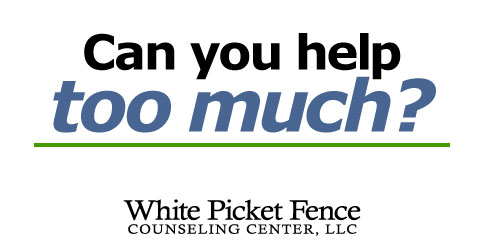
 A lot of therapists aren’t comfortable with getting paid professional fees for service. They’re tempted to lower their fees or offer free services. Yet therapy is a valuable and necessary service and therapists should be compensated, and fairly. As well, people don’t necessarily value free things.
A lot of therapists aren’t comfortable with getting paid professional fees for service. They’re tempted to lower their fees or offer free services. Yet therapy is a valuable and necessary service and therapists should be compensated, and fairly. As well, people don’t necessarily value free things.
I set fees that reflect my training, experience, and expertise, but I help where I can. I offer scholarships through our not-for-profit foundation, volunteer in certain settings, and provide referrals to self-help resources and other settings where people can get the help they need. So I get to do both, volunteer and also get paid for helping people.
That same type of balance is important for people in recovery from an eating disorder or other addiction. Though the AA Big Book talks a lot about helping others, the classic picture of a recovering alcoholic is very self-focused, including doing a thorough self-assessment.
With people recovering from food issues it can be the same, or sometimes it’s completely the opposite and they need to be prompted to practice self-care and focus on themselves and their recovery.
Doing things for other people can border on co-dependency, where you’re assuming that the other person isn’t capable. It can also serve as a distraction from the person’s own troubles and choices. Or it can be people-pleasing to avoid confrontation or seeing others struggle. This may interfere with someone else’s personal journey of growth and healing.
Helping others is important, but are you doing enough to help yourself?
